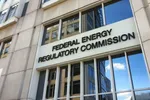HOW WE WORK
Whether You are a Small Business, a Medium Sized Business, a Large Business, a Utility, a Municipality, a Government Agency, or Are Just Facing a Wacky Situation,
EUG doesn’t just talk about energy savings, battery energy storage, and distributed energy - We Have Experience Doing It - and were part of Greentech Media’s innovation of the year award in 2018.
We Will Make It Work.
How Do We Make It Work?
With Our Experience, We reduce your energy costs, your carbon footprint and explain why all of this is important.
Step 1: Understand Your Business and Reduce Energy Procurement Costs
Contract Setup is Key: We Set up the initial contract and structure incorporating individual needs using historical data usage and accounting for variables such as: usage changes (increase or decrease); facility changes; business expansion or downsizing, market trends, and sustainability goals.
○ EUG Studies market trends and advises clients to negotiate and adjust contracts accordingly.
○ You help us Understand your business and we help you structure your energy contracts to bring the best value in the long-term.
○ EUG helps you Take advantage of and maximize market cycles.
○ We provide Ongoing Analysis and Monitor your energy contracts in relationship to the market and when pricing changes, your contract is reviewed for possible opportunities.
Step 2: Reduce Your Carbon Footprint
○ Switching out to LED lighting reducing traditional energy usage
○ Utilizing offsite solar and or wind contracts to meet sustainability goals and decrease costs
○ Rooftop solar
○ Battery energy storage
○ Renewable energy credits - subsidies for renewable innovations
○ Self-generation
Who Do We Help?
We help Residential Customers, Small Businesses, Medium Sized Businesses, Large Businesses, Utilities, Municipalities, and Government Agencies achieve their energy goals.

AUSTIN ENERGY SHINES
Energy Utility Group was the certified WBE Consultant on the commercial battery energy storage solution for the Austin Energy SHINES U.S. Department of Energy Grant Project.
This project won the Greentech Media 2018 Innovation of the year award.
Virtual Power Plants were created with battery energy storage to predict and anticipate usage, store and discharge energy to the grid.
EUG's role as consultant included: City of Austin permits - application to final permits, collaboration with building. electrical. AUX power, meter variance, interconnect, and fire department to develop the Austin's ESS permit process; local project management for prime STEM and client scheduling for install, shut-downs for interconnection, inspections; logistics, and shipping of batteries, rack & metering equipment; and meters for each site.
EUG and Austin Energy are the FIRST to successfully secure battery energy storage solutions permits from the City of Austin.
This permitting process that EUG and the City of Austin developed is now used in California.
Energy Utility Group was also the WBE part of an Independent Review Team to review and provide alternatives to Austin Energy's Combine Cycle Plant.
EUG provided current market pricing, maintenance costs for solar, wind, and battery energy storage for 500MW in various scenarios of each element or combination and water impact of each scenario.

commercial buildings - wacky BILLING
Is Your Energy Contract Structure Right For Your Business Needs?
This EUG client owns and manages office buildings. EUG had gathered the historical usage data to begin the competitive pricing process.
Upon review of the data, there was one meter showing a material reduction of 30% in energy usage over the past few months. This prompted a phone call with the facility manager and legal counsel to understand the change of use in this space and to structure the energy contract in the best interest of the company.
Every large commercial or industrial energy contract has a material change clause included. This clause penalizes the customer in additional fees and costs similar to an early termination fee when there is a material decrease or increase in energy usage.
EUG negotiated removal of these penalties through upfront negotiation and structured the contract terms to allow for the usage reduction for a period of time followed by an increase in usage.
At EUG we aren’t nosy, but we take Outsourced Energy Management seriously.
EUG knows what is possible.
How are you using your energy?

INTERNATIONAL QUICK FOOD SERVICE
Energy Utility Group's Quick Service Restaurant customer was looking to reduce energy costs. EUG brought in LED retrofit saving the customer 30% over competition pricing and reduced energy consumption by 17%.
EUG secured an energy procurement contract reducing per kWh cost by
1 cent & provided an incentive of $1,000 per location for LED retrofit further reducing the out of pocket LED expense. Our customer has saved over $750,000 in 4 years.

MULTI-FAMILY
EUG reviewed historical usage data and presented LED and solar PV systems for properties interconnecting 3 systems that provided 100% offset with grid back up, contract buy/sell, and monitoring for tenant usage which accelerated the payback period of the investment to 5.35 years with utility rebate and 30% Income Tax Credit.

early termination fees reduced
How Would You Like to Pay Over $13,000 in early termination fees for a building you just bought?
Early Termination Fees (ETFs) are a part of every energy contract from residential to large commercial industrial customers. Retail Energy Providers (REPs) hedge and procure energy to serve the load for the term of every energy contract signed.
If the customer terminates the contract early due to any reason the Retail Energy Providers will charge an ETF. Every retail energy provider has a different calculation; it can be a flat fee for a residential customer up to the balance of the term of the contract for a commercial customer.
A commercial EUG customer had a change in the executive team. Energy fell under this position in the organization and the new person was from a state where energy is regulated (e.g. no choice of provider).
EUG reached out many times for a meeting, a phone call, etc. and after 1 year – no response. EUG is very proactive with the transfer of knowledge about energy contracts and the market to assist new people inside our customer's organizations.
Then came the call from the new execuitve. The organization sold an office building in the portfolio and purchased another building. EUG’s customer was receiving the energy bills for the building sold and accounting had been paying these bills for a couple of months.
The new executive had no idea anything had to be done with the energy contract for the building sold, therefore nothing was done.
The options were to have the new owners of the sold building take assignment of the energy contract or terminate the energy contract and incur the ETF.
The ETF was $13,897.
EUG’s customer decided to terminate the energy contract and pay the ETF.
EUG negotiated on behalf of our customer and was successful at reducing the ETF to $800 saving our customer $13,097.





